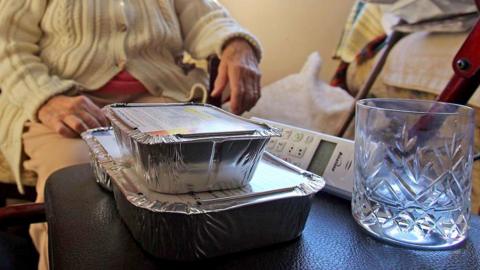Care providers have said the government is taking away the "lifeline" of overseas recruitment without fixing the problems that make it difficult to recruit UK staff.
Sir Keir Starmer, the prime minister, announced sweeping reforms to immigration on Monday, including plans to end the recruitment of care workers from overseas.
Even with staff being brought in from other countries, official estimates show there were 131,000 vacancies in social care in England last year.
Care companies said some services will struggle to survive without international recruits.
"The sector has been propping itself up with dwindling resources, rising costs, and mounting vacancies," said Prof Martin Green of Care England, which describes itself as the largest representative body for independent care providers.
"Taking (international recruitment) away now with no warning, no funding, and no alternative, is not just short-sighted - it's cruel," he said.
Sir Keir said the visa changes were part of a drive "to reduce immigration significantly" and that the government wanted to create "a migration system that is controlled, selective and fair".
The government said care providers could extend visas for existing staff and recruit migrants already in the UK who have yet to find a job. It also promised a new fair pay agreement for care staff and wanted companies to recruit and train more people from UK.
However, Dr Jane Townson of the Homecare Association said the government was introducing the changes "in a vacuum" as a fair pay agreement is a long way off and there is "no plan to deliver the care workers our country needs."
Social care has been in crisis for years, with council funding of services squeezed, significant staff-shortages and growing demand from an ageing population. Plans for reform have been delayed time and again.
While care workers were clapped along with health workers during the pandemic, that did not translate into an improvement in pay or status.
About 1.7 million people work in social care in England, according to Skills for Care, the official body that monitors the workforce. It is often a minimum or just above minimum wage job, with little recognition of the increasing responsibility and complexity of the support staff provide to older and disabled people.
